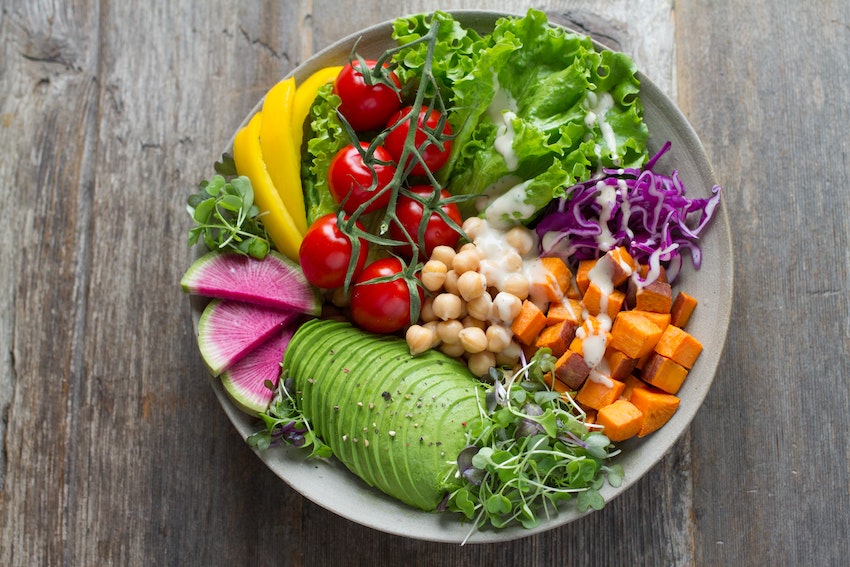What Exactly Is Vegetarianism, and What foods do Vegans Eat?

Vegetarianism is a way of eating that abstains from consuming animal-based foods. It is a lifestyle choice motivated by many personal, ethical, environmental, and health considerations. To those unfamiliar with Vegetarianism, it can be unclear what foods are allowed, which is why this article will explore the basics of Vegetarianism and veganism in addition to looking at some food options that fit into both diets.
Whether you're considering giving up meat or just curious about what vegans eat, this blog post will give you a better understanding of the topic.
What is Vegetarianism?
Different types of vegetarians include those who consume eggs, dairy, and fish along with plant foods, while ovo-vegetarians eat only plant foods and eggs. Lacto-vegetarians do not eat eggs but do eat dairy. Ovo-Lacto vegetarians are the most common type of vegetarian. People who do not eat any animal products are vegans.
While there are many reasons why people choose vegetarian or vegan, the main reason is ethical. They believe it is wrong to kill animals for food when so many other options are available. Other causes include health benefits, environmental concerns, and religious or spiritual beliefs.
Various plant-based foods can be consumed on a vegetarian or vegan diet. These include fruits, vegetables, grains, legumes, nuts, and seeds. Many meat and dairy substitutes, such as tofu, tempeh, seitan, and soy milk, are also available.
Different types of Vegetarianism
Vegetarianism is not a single diet or lifestyle but refers to various diets that exclude meat and fish. There are many different types of Vegetarianism, each with its reasons for avoiding meat and fish.
The most common type of Vegetarianism is lacto-ovo Vegetarianism, which excludes meat and fish but allows dairy and eggs. This type of Vegetarianism is often adopted for health reasons, as it can lower cholesterol and help with weight loss.
Another common type of Vegetarianism is pescetarianism, which excludes meat but allows fish. This diet is often adopted for environmental reasons, as it reduces the impact on ecosystems.
There are also more restrictive types of Vegetarianism, such as veganism. Vegan diets are devoid of animal products, including dairy, eggs, and honey. This diet is often adopted for ethical reasons, as it minimizes the harm caused to animals.
People could decide to adopt a vegetarian diet for a variety of reasons. Some people do it for health reasons, while others believe it is more humane than meat. Whatever the reason, there are pros and cons to consider before making the switch.
One of the biggest pros of a vegetarian diet is that it is typically much healthier than an omnivorous diet. Studies have shown that vegetarians have lower risks for heart disease, obesity, cancer, and type 2 diabetes. They also tend to have higher levels of HDL (good) cholesterol and lower levels of LDL (bad) cholesterol.
Another pro is that Vegetarianism is more environmentally sustainable than meat-based diets. Producing vegetables requires less land, water, and energy than meat. This means that following a vegetarian diet can help reduce your carbon footprint.
However, there are also some potential downsides to Vegetarianism to consider. One is that you may need to be more careful about getting enough protein if you don't eat meat. You can get protein from other sources like beans, lentils, tofu, nuts, and seeds, but you'll need to include them in your diet regularly.
Another potential downside is that you may miss essential nutrients like iron and vitamin B12 if you don't eat meat or animal products. To ensure you're getting enough of these nutrients, you may need to take supplements or eat certain fortified foods.
What do Vegans Eat?
Vegans typically eat a plant-based diet, meaning they do not consume animal products. This includes meat, poultry, fish, dairy, eggs, and honey. While some vegans also avoid eating foods that contain or are processed with animal products, such as white sugar and some wines, most vegans do not worry about these trace amounts of animal products.
Vegan Recipes
Assuming you would like a vegan recipe section for the blog article "What Exactly is Vegetarianism, and What Foods do Vegans Eat?":
Many delicious vegan recipes are easy to make at home. Here are some of our favorites:
- Vegan Enchiladas: These enchiladas are packed with flavor and are sure to please even the pickiest eaters.
- Black Bean Brownies: These brownies are rich, fudgy, and wholly dairy-free and egg-free.
- Chickpea Curry: This is a filling, savory dish ideal for a midweek meal. For a balanced dinner, serve it with rice or quinoa.
- Vegan Chocolate Cake: This cake is moist, fluffy, and chocolatey - everything you could want in a dessert!
Alternatives to a Vegan Diet
There are many different types of Vegetarianism, and each style has its own set of dietary restrictions. Some vegetarians eat eggs and dairy products, while others do not. Vegans, the strictest type of vegetarian, do not eat animal products, including honey.
There are many alternative diets to a vegan diet. Some people eat a vegetarian diet that includes eggs and dairy products. Others may eat a pescatarian diet, including fish and other animal products. There are also flexitarian diets, which include occasional meat or poultry.
Conclusion
Vegetarianism and veganism are both dietary practices that have emerged as increasingly popular choices in recent years. While the two lifestyles may share some elements, they can differ depending on your diet. A vegetarian will likely consume dairy products and eggs, while a vegan diet is entirely devoid of all animal-based foods.
Ultimately, it's essential to consider what works best for you and your lifestyle when deciding between vegetarian or vegan diets. With so many delicious options available for vegans today, it's easy to find something that fits everyone's culinary needs!
